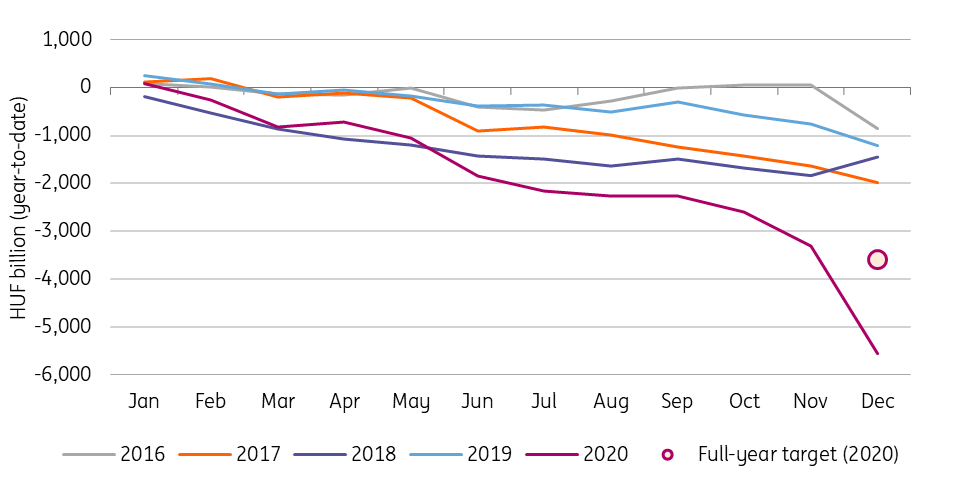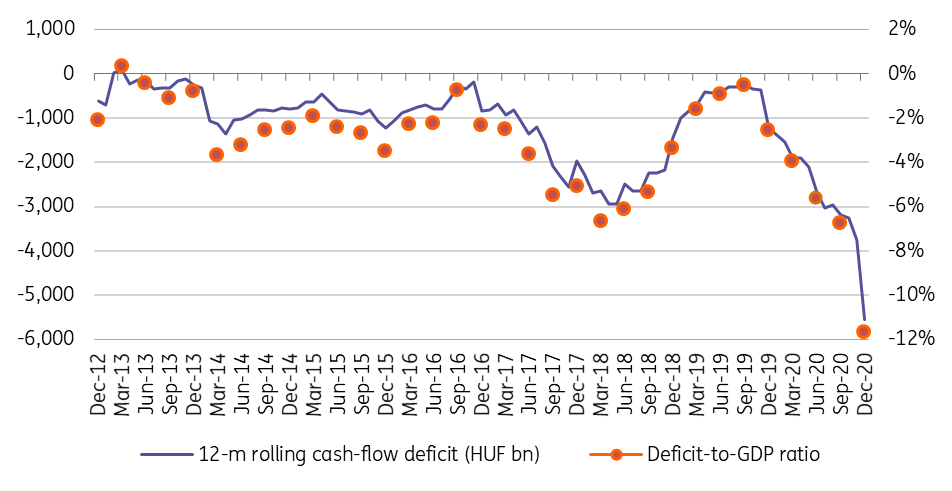Hungary: Extraordinary budget spending
As the government saw real fiscal room by year-end compared to the deficit goal, it decided to open the money taps. And there was no modesty in this
The budget deficit increased by HUF 2.25 trillion in December, an unusual and extraordinary spending spree by the government. This resulted in a HUF 5.55tn accumulated cash-flow based deficit throughout 2020. Just as a reminder, the original deficit goal (pre-Covid) was HUF 0.4tn. This off-the-chart deficit likely comes as a surprise to those who weren't monitoring fiscal developments during the holiday season. The Hungarian government began spending big in mid-December and when it released its latest official macro projection on 31 December, we already knew that something extraordinary was coming.
Cash-flow based year-to-date central budget balance

The government’s deficit goal was set at 9% of GDP, accrual based. Because the recent figures are based on cash-flow data, it is quite clear that there are several items which will only burden future years from an accrual perspective. As the government got more information close to year-end, it realised that the fiscal room for manoeuvre was still there. So it decided to add to the already massive 2020 cash-flow deficit. We have to wait a while to see whether the Ministry of Finance’s calculations were correct. But what is (almost) sure is that the cash-flow based government deficit compared to the estimated 2020 GDP will come in at around 12%.

This huge monthly deficit was accumulated despite a significant transfer from the EU. The budget got HUF 665bn transfers from Brussels just in December, raising the full-year amount to HUF 1.7tn. In the meantime, the government spent roughly HUF 2tn on EU projects. Against this backdrop, the vast majority of the deficit is not related to the programmes pre-financed by the government, as was the case in previous years. The 2020 deficit is purely a Covid-induced phenomenon.
With the prepaid expenses affecting 2020, the government created some (optical) breathing room in 2021. Based on the year-end macro projection from the Ministry, the government is not ready to cut down the deficit and debt figures anytime soon. It will take three years – according to the plan – to see a 3% deficit figure again. A quite understandable decision from a political perspective, considering the coming general election in early 2022.
This publication has been prepared by ING solely for information purposes irrespective of a particular user's means, financial situation or investment objectives. The information does not constitute investment recommendation, and nor is it investment, legal or tax advice or an offer or solicitation to purchase or sell any financial instrument. Read more
Download
Download snap